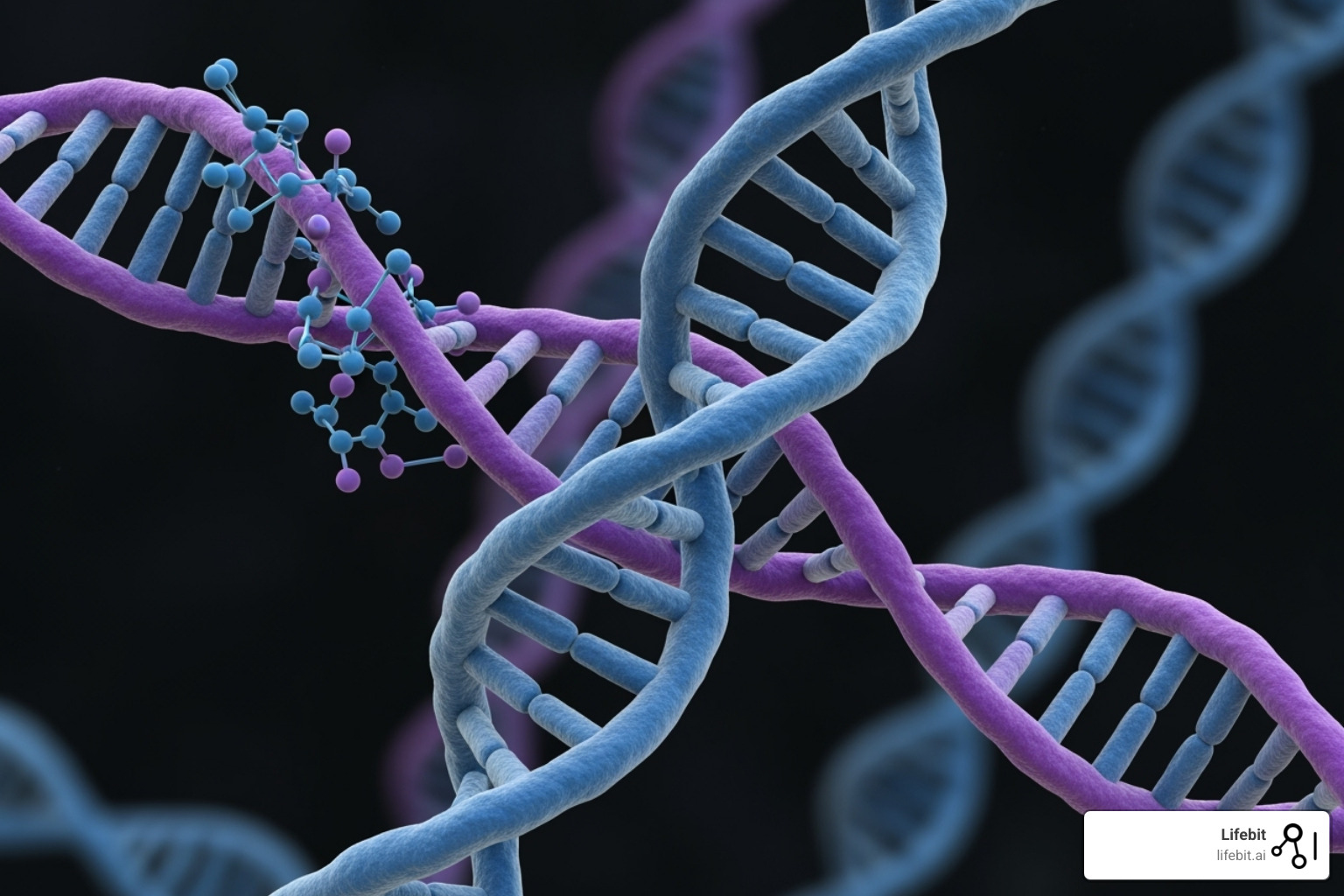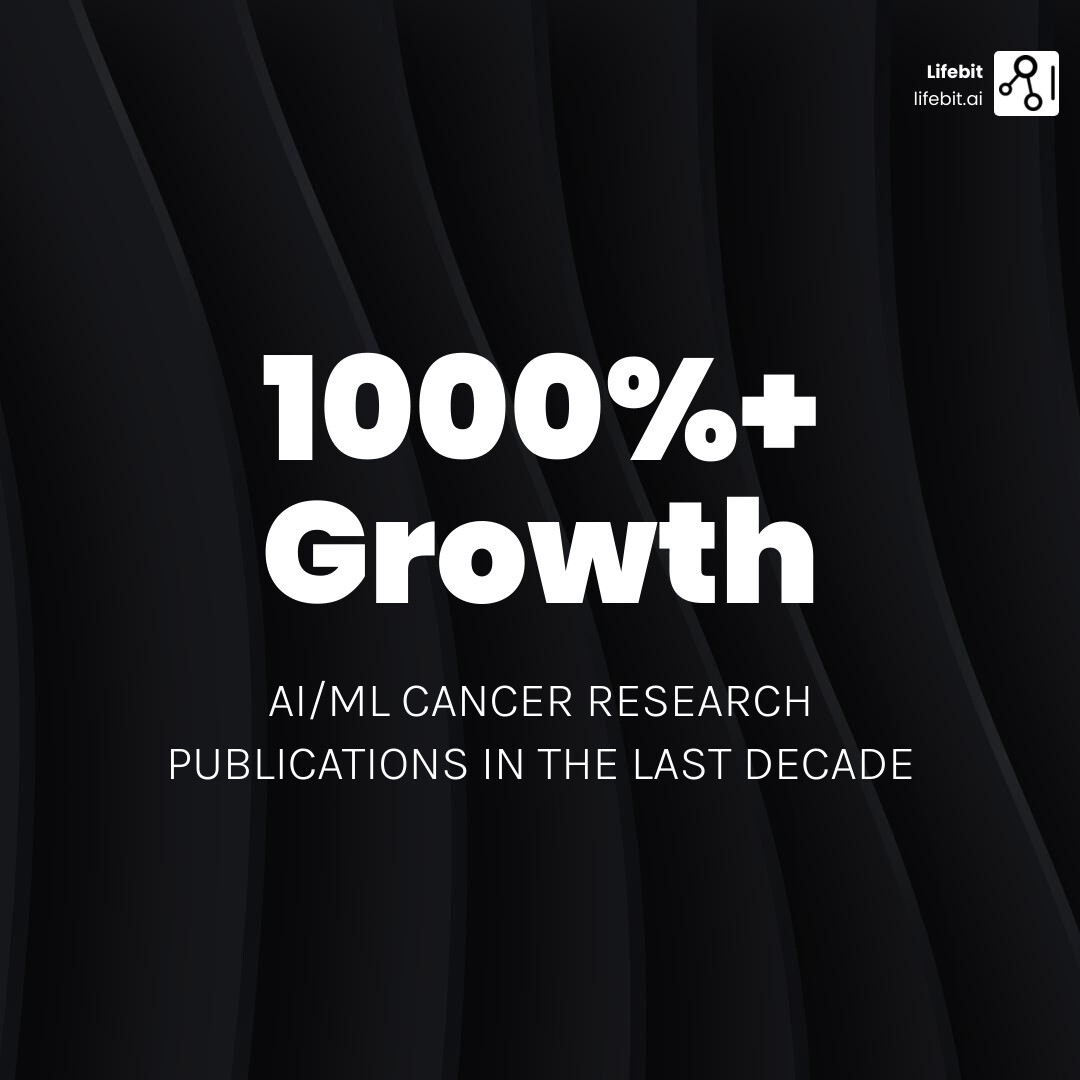Cancer Research Uncovered: The Quest for a Cure

Cut Trial-and-Error in Cancer Care: Data-Driven Research Speeds Precise Treatment
Cancer remains one of humanity’s greatest health challenges, claiming nearly 10 million lives worldwide in 2020. But there is unprecedented hope. Survival rates are steadily climbing, driven by breakthrough cancer research in labs and clinics around the globe. This progress is built on several key pillars that are fundamentally changing our approach to the disease.
The Pillars of Modern Cancer Research
Prevention and early detection form the first line of defense. Research in this area focuses on identifying modifiable risk factors—such as diet, exercise, and environmental exposures—and developing robust public health strategies to mitigate them. Simultaneously, early detection methods are becoming more sophisticated. Beyond traditional mammograms and colonoscopies, researchers are developing blood tests known as liquid biopsies that can spot cancer at its earliest stages, as well as genetic screening programs for high-risk individuals, such as those with BRCA1/2 mutations, to enable proactive monitoring and preventative measures.
Genomics and personalized medicine represent a paradigm shift from one-size-fits-all treatments to therapies tailored to an individual’s unique cancer. By sequencing a tumor’s genome, scientists can pinpoint the specific mutations driving its growth. This genetic blueprint allows oncologists to select targeted therapies that block those exact pathways, leading to more effective outcomes with fewer side effects. For example, drugs like vemurafenib are highly effective against melanomas with a specific BRAF mutation, a findy made possible only through genomic analysis.
Immunotherapy has emerged as one of the most powerful tools in the oncology arsenal. Instead of attacking cancer directly, this approach harnesses the power of the body’s own immune system to identify and destroy malignant cells. This includes checkpoint inhibitors, which release the natural brakes on immune cells, allowing them to attack tumors, and CAR-T cell therapy, a living drug where a patient’s own T-cells are engineered to recognize and eliminate cancer.
Data science and AI are the engines accelerating progress across all fronts. Artificial intelligence algorithms can analyze vast datasets—from genomic sequences to pathology slides and clinical trial results—to uncover patterns invisible to the human eye. This is speeding up drug findy by identifying novel targets, improving diagnostic accuracy by analyzing medical images with superhuman precision, and predicting which patients are most likely to respond to a particular treatment.
Finally, none of this would be possible without collaborative networks. The scale and complexity of cancer research demand that scientists, clinicians, and institutions share data and knowledge globally. Initiatives like the International Cancer Genome Consortium and Canada’s Terry Fox Research Institute are breaking down traditional silos, creating a connected ecosystem where a findy in one lab can rapidly inform research thousands of miles away.
This data-driven, collaborative landscape is the key to precision medicine. This fight requires unprecedented cooperation, and the scientific community is uniting to transform how we prevent, diagnose, and treat cancer.
As Maria Chatzou Dunford, CEO and Co-founder of Lifebit, I’ve spent over 15 years at the intersection of computational biology and AI. My work in cancer research focuses on building platforms for secure, federated data analysis to break down silos and accelerate precision medicine findies.
Share Data or Stall: Global Collaboration Cuts Years off Cancer Cures
When a scientist in Vancouver finds a new biomarker, a researcher in Toronto can access that data within hours. This is the power of collaborative cancer research, and it’s changing everything.
The fight against cancer is no longer confined to isolated labs. It’s a massive, connected network where breakthroughs in one country spark innovations across continents. Canada is a major force in this global effort, with organizations like the Canadian Cancer Society and the Terry Fox Research Institute leading the charge.
These groups unite researchers, doctors, and patients in a shared mission spanning basic science to patient care. Funding is a mix of public donations, government grants from the Canadian Institutes of Health Research, and foundations like the BC Cancer Foundation. This diverse support ensures all stages of research receive the resources they need.
This model is powerful because Canadian researchers connect globally, publishing in top journals and working with international bodies. At Lifebit, we’ve seen how breaking down data barriers accelerates progress for everyone, as we explore in our work on cancer research data collaboration horizons.
The Canadian Blueprint for Fighting Cancer
Canada’s approach to cancer research is straightforward: reduce cancer’s impact on people’s lives. This means finding better treatments, preventing cancer, catching it early, and helping patients and families live better.
The Canadian Cancer Society uses a “people-centered” strategy where patients and families help shape research priorities. They invest across the board, from new scientists to massive national programs.
BC Cancer runs one of the world’s most comprehensive cancer programs, handling everything from prevention to end-of-life care. Its research spans over sixty labs and is known internationally for excellent patient care and groundbreaking findies. The BC Cancer Foundation is currently raising $500 million to accelerate this innovation. You can donate to support Canadian research.
The Power of the People: Patient Involvement in Research
What makes Canadian cancer research special is its partnership with patients. Patients, survivors, and caregivers aren’t just subjects; they actively shape research priorities and funding decisions. When someone living with cancer says, “this is what we really need,” researchers listen.
This partnership ensures studies address the problems that matter most. Patients help design studies, review proposals, and guide how findings are shared. The result is more relevant research and funding directed toward high-impact studies.
The Terry Fox Research Institute’s Marathon of Hope Cancer Centres Network exemplifies this spirit. It connects top cancer hospitals and research centers across Canada to bring precision medicine to patients faster. You can learn about the Marathon of Hope network to see how this partnership is changing cancer care. When patients, researchers, and institutions work together, the path from lab to patient becomes much shorter.
Skip Chemo’s Collateral Damage: Targeted and Immune Therapies That Work Now
The world of cancer research has transformed. Today’s researchers wield an incredible arsenal of tools, from understanding our genetic code to engineering our own immune cells to fight cancer.

Modern cancer research is a multi-front battle focused on prevention, early detection, and smarter, gentler treatments. We’re rapidly moving toward personalized medicine, tailoring every therapy to a patient’s unique biology. At the heart of this revolution is genomics, the study of our DNA. Understanding the genetic mistakes that cause cancer allows us to design targeted treatments, a process where AI for precision medicine is crucial for analyzing massive genetic datasets. This shift is exemplified by three revolutionary areas: targeted therapy, immunotherapy, and epigenetics.
Targeted Therapies: Molecular Guided Missiles
Unlike traditional chemotherapy, which attacks all rapidly dividing cells, targeted therapies act like molecular guided missiles. They are designed to interfere with specific molecules, or targets, that are involved in the growth, progression, and spread of cancer. These targets are often the products of the very mutations that drive the disease. For example, HER2-positive breast cancer is fueled by an overabundance of the HER2 protein; drugs like trastuzumab (Herceptin) specifically block this protein, halting the cancer’s growth. Similarly, PARP inhibitors have revolutionized treatment for ovarian and breast cancers with BRCA1/2 mutations. These drugs exploit a weakness in the cancer cells’ DNA repair mechanism, a concept known as synthetic lethality, causing them to self-destruct while leaving healthy cells largely unharmed. This precision leads to fewer collateral side effects and a significantly improved quality of life for patients.
Immunotherapy: Unleashing the Body’s Own Defenses
Immunotherapy is one of the most exciting frontiers, based on the principle of teaching a patient’s own immune system to recognize and destroy cancer. A major breakthrough in this field is the development of immune checkpoint inhibitors. Cancer cells often exploit natural “checkpoints” or brakes on the immune system, such as the PD-1/PD-L1 pathway, to hide from attack. Checkpoint inhibitors are drugs that block these pathways, effectively releasing the brakes and allowing T-cells to launch a powerful assault on the tumor. This approach has produced durable, long-term remissions in patients with melanoma, lung cancer, and kidney cancer, among others.
Another powerful form of immunotherapy is CAR-T cell therapy. This highly personalized “living drug” involves extracting a patient’s T-cells, genetically engineering them in a lab to produce Chimeric Antigen Receptors (CARs) that recognize a specific protein on cancer cells, and then infusing these supercharged cells back into the patient. The results in blood cancers like acute lymphoblastic leukemia and non-Hodgkin lymphoma have been nothing short of revolutionary, turning once-fatal diagnoses into manageable conditions. The next major challenge is adapting this success to solid tumors.
Epigenetics: Rewriting the Cancer Code
Beyond the DNA sequence itself, epigenetics research is opening new doors. This field studies how genes are turned on and off without changing the underlying genetic code. Cancer cells often hijack these epigenetic mechanisms, for example, by silencing tumor-suppressor genes that would normally stop their growth. Epigenetic therapies aim to reverse these changes. Drugs known as DNA methyltransferase inhibitors (like azacitidine) or histone deacetylase (HDAC) inhibitors can “reawaken” these silenced protective genes, forcing cancer cells to behave more normally or undergo programmed cell death. This approach is showing promise in treating blood cancers and is being actively explored for a wide range of other malignancies.
The Impact of Canadian Cancer Research on Patients
Canadian cancer research is at the forefront of translating these breakthroughs into real-world benefits for patients. Beyond increased survival rates, the human impact is profound. Diagnostic accuracy has improved dramatically with advanced genetic testing. Whole genome and transcriptome analysis (WGTA) helps doctors predict which patients will respond to specific treatments, reducing trial and error and leading to faster, more effective care. A groundbreaking study on WGTA for biomarker findy shows this technology’s power. Patients are experiencing reduced side effects as treatments become more targeted. Behind every statistic is a person who gets more time with loved ones. Canadian researchers are making cancer more treatable, one findy at a time, by using tools like tumor mutation burden analysis to design precise, personal treatments.
Turn Health Data into Cures: How AI Finds Targets and Predicts Response Today
Modern cancer research generates an ocean of data dailyfrom patient scans to genetic sequences. This information holds the keys to defeating cancer.
The role of statistics and data in guiding cancer research is critical. We’re analyzing patterns across millions of people to understand which treatments work best, predict cancer risk, and detect disease earlier. Artificial Intelligence and Machine Learning are turning this data deluge into our secret weapon. These systems can analyze multi-omic data (DNA, RNA, proteins) from thousands of patients, and as a result, cancer research publications using AI have exploded over the past decade.

Of course, with great data comes great responsibility. Patient privacy is paramount. Secure platforms are essential for targeting cancer with large-scale data analysis while keeping sensitive information locked down. Trusted Research Environments enable researchers to work with health data without compromising privacy.
How Data and AI are Changing Cancer Research
AI is revolutionizing cancer research. The technology is especially powerful for predictive biomarker findy, teaching computers to spot molecular signatures that predict patient response to specific treatments. Drug target identification is another game-changer. Instead of years of manual lab work, AI can analyze molecular pathways to pinpoint the most promising targets, a process we help accelerate with our work in drug target identification & validation.
In diagnostics, AI-powered radiomics can spot cancer signs in medical scans that even experienced doctors might miss. In computational oncology, scientists build computer models to simulate cancer growth and predict treatment responses, creating a virtual lab for testing therapies.
Canada’s Digital Health and Findy Platform (DHDP), co-led by the Terry Fox Research Institute, exemplifies this data-driven approach by providing the backbone to share and analyze health data nationwide. Learn more about the DHDP.
Overcoming Problems: Secure and Collaborative Data Analysis
The biggest challenge: AI needs massive, diverse data, but patient information must remain secure. Traditional data silos lock valuable information away in disconnected systems.
Federated analysis is the solution. Instead of moving sensitive data, we bring the analysis tools to the data. This allows researchers to gain insights without the raw patient information ever leaving its secure source. Our Federated Trusted Research Environment makes this possible, creating secure bridges between data sources.
This approach enables global collaboration on an unprecedented scale. A researcher in Toronto can analyze patterns that include data from patients worldwide, all while maintaining the highest privacy standards. The result is more comprehensive and representative real-world evidence. For a deeper dive, this guide to AI in cancer research offers excellent insights.
Cut Cancer Drug Discovery Time by Up to 50%: What’s Coming Next?
The pace of findy in cancer research is breathtaking. Treatments that seemed impossible 20 years ago are now saving lives. Yet, the most exciting breakthroughs may still be ahead.
AI is revolutionizing drug findy. Traditional development takes 10-15 years and costs billions, with a low success rate. AI-driven approaches are cutting timelines and costs while improving success rates by using data to identify promising drug targets and design optimized molecules.
| Feature | Traditional Drug Findy | AI-Driven Drug Findy |
|---|---|---|
| Timeline | 10-15 years | 5-10 years (potential) |
| Cost | Billions of dollars | Significantly reduced |
| Target ID | Manual, hypothesis-driven | Data-driven, rapid |
| Molecule Design | Iterative, trial-and-error | Generative, optimized |
| Success Rate | Low (approx. 10%) | Potentially higher |
This is happening alongside advances in immunotherapy, liquid biopsies that detect cancer from a blood test, and mRNA cancer vaccines. The Cancer Moonshot initiative continues to drive ambitious goals worldwide. However, new obstacles emerge with every breakthrough. Drug resistance, funding gaps, and data access barriers remain critical challenges.
Recent Breakthroughs on the World Stage
Canada is a global leader in cancer research, producing findies that change treatment protocols worldwide. The Genome Sciences Centre at BC Cancer is a prime example, pioneering genomic technologies to understand cancer at a fundamental level. You can explore the Genome Sciences Centre to see their work.
One promising area is hypoxia-responsive CAR-T cells. Solid tumors often have low-oxygen (hypoxic) environments that suppress immune cells and render therapies like CAR-T less effective. Canadian researchers are engineering CAR-T cells that are specifically activated in these hypoxic conditions, turning the tumor’s own defense mechanism into a trigger for its destruction. This is a major leap for making immunotherapy work in solid tumors.
Scientists are also making strides with Wnt inhibitors in myeloma and exploring how cannabinoids might induce cell death in pancreatic tumors. While early, these findings are encouraging. Advanced computational methods like Tumor Mutation Burden (TMBur) are also enhancing diagnostic accuracy, making therapy more precise.
Emerging technologies like liquid biopsies are poised to revolutionize cancer management. These simple blood tests can detect tiny fragments of circulating tumor DNA (ctDNA) shed by tumors. This allows for non-invasive cancer screening, real-time monitoring of a patient’s response to treatment, and early detection of relapse weeks or months before it would appear on a scan. Another game-changer is the development of therapeutic mRNA cancer vaccines. Unlike preventative vaccines, these are custom-built for each patient based on the unique neoantigens (mutated proteins) found on their tumor. The vaccine teaches the patient’s immune system to recognize and launch a highly specific attack against only the cancer cells, offering a truly personalized form of immunotherapy.
Charting the Course: Future Challenges and Directions
Despite this progress, cancer research faces tough challenges. Hard-to-treat cancers like pancreatic cancer and glioblastoma remain stubbornly difficult to cure. Pancreatic cancer, for instance, is protected by a dense, fibrous wall called the stroma, which acts as a physical barrier preventing drugs and immune cells from reaching the tumor. Glioblastoma, the most aggressive brain cancer, is shielded by the blood-brain barrier and grows with diffuse, finger-like tentacles that make complete surgical removal nearly impossible. Overcoming these biological hurdles requires entirely new therapeutic strategies.
Health inequities are another major hurdle. Advanced treatments must reach all who need them, including rural and underserved populations. BC Cancer’s expansion of clinical trials to new regions is a step in the right direction, but more is needed to ensure equitable access to cutting-edge care.
As survivorship increases, managing long-term health challenges from treatment becomes more important. And technically, integrating multi-omics datagenomics, proteomics, and moreto get a complete picture of a cancer remains a formidable analytical challenge. This requires building a ‘digital twin’ of a tumor by combining every layer of biological data, a task that demands immense computational power.
Federated learning offers a path forward, allowing AI models to train on decentralized data while protecting patient privacy. It’s the kind of innovation that can open up the full potential of global health data. Our work at Lifebit leveraging AI for target validation demonstrates how these technologies accelerate findy securely.
The future of cancer research is blazing. Today’s challenges are spurring tomorrow’s innovations, giving us every reason to be optimistic.
Want Faster Cures? Fund Smarter, Join Trials, Get Personalized Care—Here’s How
If you’re curious about cancer research, you’re not alone. Here are answers to some of the most common questions.
How is cancer research funded?
Cancer research funding is diverse, which ensures different types of studies get the support they need. Key sources include:
- Government agencies: In Canada, the Canadian Institutes of Health Research (CIHR) is the main federal funder, complemented by provincial bodies.
- National charities: Organizations like the Canadian Cancer Society and the Terry Fox Research Institute rely on public donations and fundraising events.
- Private foundations: Groups like the BC Cancer Foundation raise millions for specific regions or cancer types.
- Pharmaceutical industry partnerships: These are essential for drug development and clinical trials, helping bring new treatments from the lab to patients.
This multi-source approach backs everything from basic science to large-scale clinical trials.
How can I support or get involved in cancer research?
Everyone can contribute to cancer research, regardless of their background. Here are a few ways:
- Donate: The most direct way to help. Organizations like the Canadian Cancer Society put your money directly to work funding research.
- Fundraise: Participate in events like the Terry Fox Run to raise money and awareness.
- Volunteer: Research institutions, hospitals, and charities always need help with administrative tasks, patient support, and events.
- Participate in clinical trials: For eligible patients, this is a direct way to contribute to new treatments while potentially accessing cutting-edge therapies.
- Advocate: Contact elected officials to support increased government funding for cancer research.
- Engage as a patient: Many organizations seek input from patients and caregivers to ensure research addresses real-world needs.
What is personalized medicine in cancer treatment?
Personalized medicine is a approach in cancer treatment. Instead of a one-size-fits-all strategy, doctors tailor treatments to each person’s unique cancer.
The process begins with genetic profiling of the patient’s tumor to understand the specific mutations driving its growth. With this blueprint, doctors can prescribe targeted therapiesdrugs designed to block those specific pathways. These are often more effective and have fewer side effects than traditional chemotherapy.
Biomarkers are crucial, acting as biological indicators that help predict how a patient will respond to a treatment. This allows doctors to make informed decisions, leading to better outcomes and improved quality of life.
At Lifebit, we work to make personalized medicine more accessible by enabling secure analysis of the vast genetic data needed to identify these biomarkers and treatment targets. It’s an exciting time for cancer research, with new possibilities emerging constantly.
Break Data Silos Now: Federated Platforms Speed Cancer Breakthroughs
The story of cancer research is one of extraordinary progress. A fight against a once-fatal disease has become a journey of hope, with survival rates climbing yearly thanks to global breakthroughs.
This progress is the result of a massive collaborative, data-driven endeavor that unites the brightest minds worldwide. From researchers in labs to patients in clinical trials and families at fundraising walks, everyone plays a vital role.
The future is genuinely hopeful. We are in a golden age of medical innovation where genomics meets immunotherapy and AI uncovers patterns invisible to the human eye. The pace of findy has never been faster.
What makes this possible is our ability to share knowledge and data securely. The role of federated platforms is crucial, allowing researchers to analyze vast, global datasets while protecting patient information. This is where breakthroughs accelerate exponentially.
At Lifebit, we are honored to be part of this mission. Our federated AI platform provides secure, real-time access to global biomedical data, empowering researchers to make their next findy. We believe that by opening up global health data in a secure, compliant way, we can collectively outsmart cancer.
The road ahead is challenging, but together, we are writing a brighter next chapter for cancer research. To see how federated data platforms are revolutionizing healthcare, learn how federated data platforms are changing federal health initiatives.


